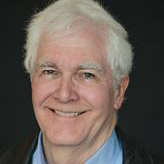As large numbers of human beings begin to move off of planet Earth, living and working in the rest of the solar ecosystem, what term shall we use to describe it?
Clearly, the past 60 years or so have been a time of “space exploration,” and, to some extent, “space development.” Professional astronauts have been exploring the region beyond the Earth’s atmosphere, and entrepreneurs have looked at ways to develop that region. Low Earth Orbit has been the location of the greatest economic successes, especially with satellites.
When we imagine people living on the Moon or Mars, or in an O’Neill community, though, what will we call it? There is a growing reluctance to talk about “colonies” and “colonization,” and for good reason. As my colleague Jared Angaza puts it, “We are trying to decolonize the Earth, let’s not colonize the rest of the solar system.” The colonization of large parts of the planet that accompanied our previous ages of exploration was a historical disaster for entire societies. It is a non-inclusive term, and represents an exploitative mindset. Language matters because it shapes behavior, and we should not continue using it if we want to attract more adherents to our cause.
I think many space advocates are ready to abandon “colonies,” but not “settlements” at this point in time. While settlement might seem to be a value-neutral word, for many people, it is not. The European colonists, for example, who came to North America in the 17th century morphed into the Wild West settlers of the 18th and 19th centuries. By either name, their arrival was a catastrophe for Indigenous peoples throughout what became the United States.
Even if we did not have this legacy to consider, I would suggest that the image of colonists, pioneers, and settlers is likely to be wrong. While life in other parts of the solar ecosystem will be difficult for many of those who go, we have technology that is far superior to what existed in those earlier periods of exploration. I believe the image of “migrant” might be far more accurate in considering those who will live in other parts of the solar system, than that of pioneers like Daniel Boone and Davy Crockett.
If you look at some of the space art that was created to promote the idea of an O’Neill community, it depicts a pleasant environment, not the rough-edged imagery of a Western boom town. I have also been impressed with the work of ABIBOO, a Milan-based architectural firm, to develop designs for five sustainable cities on Mars with a total population of one million people. Their videos and articles portray human habitats that are attractive and appear to be highly livable. (1)
“Space migration” calls up the image of individuals and families seeking a better way of life, leaving home because it does not live up to their expectations, and moving somewhere else that will be an improvement over their current state. Migration is also a very human thing to do, and it has been happening for thousands of years, often following a period of exploration and development.
While “colonist” and “settler” are exclusionary terms for some segments of the population, “migrant” does note have to be. Although there are certainly people in the United States, and other countries, who bristle at the term “immigrant,” they usually say it depends on the type of immigration being discussed. The vast majority of people in the US would accept the oft-stated sentiment that “we are a nation of immigrants.”
So let’s stop using terminology that not only excludes people but might also be an inaccurate description of what is going to happen. Let’s start talking about “large-scale space migration (LSSM)” and enjoy the adventure that lies ahead!
References

Join our mailing list to be updated on future published articles.
Copyright © 2018-2019 2211. All Rights Reserved.